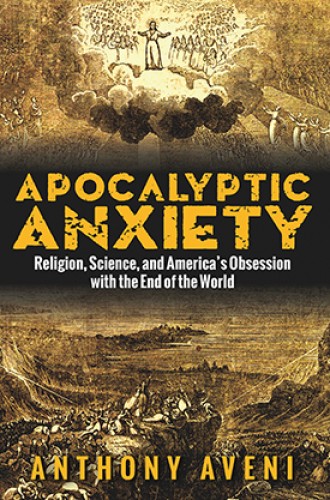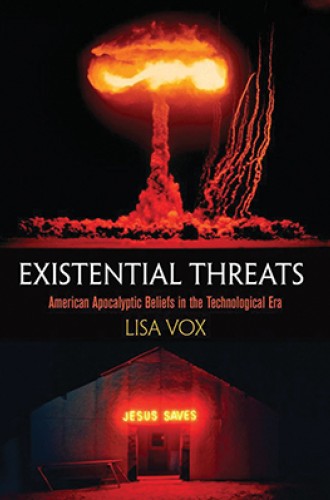The value of apocalypse
An end-of-the-world scenario, whether scientific or religious, should reorient us—but toward what?
Who is the most influential thinker in the history of American culture? A case can be made for John Nelson Darby, the 19th-century former Church of Ireland priest who cooked up what we now call premillennial dispensationalism—an eschatological scheme by which disasters natural and supernatural presage the return of Christ.
Anthony Aveni and Lisa Vox describe how American culture, politics, and apocalypticism have been braided together in ways that tend toward paranoid conspiratorial fearmongering peddled as Christianity. Darby’s mistake—I would call it a heresy—has shaped the politics that rule our country and our world. That’s a much grander claim than these two good books by appropriately modest historians would ever let themselves make. Yet I think it’s the clear conclusion they offer.
Read our latest issue or browse back issues.
Aveni, an astronomer at Colgate University, has a distinguished track record in publishing books about popular responses to astronomical phenomena, including a book even newer than this one about the recent solar eclipse. Perhaps his training explains his tone deafness with regard to Christianity. Some of his mistakes are mere editorial missteps (Tertullian is called a Roman emperor, perhaps confused with Trajan). He says Jesus is “disguised” as the prophet Daniel in apocalyptic literature, and the book of Revelation is about Jesus “transporting” people to a higher realm of existence after this world is destroyed. At least Aveni cops to his incapacity—as a scientist he thinks that all “occult” ways of knowing are simply incompatible with scientific ones, such that no bridge or dialogue can take place between them.
Why then should Christians bother to read Aveni? He gives historical sketches of end-time scenarios from William Miller’s failed 1844 prediction of Armageddon to the so-called Mayan apocalypse of 2012. In nearly every case, Christians look at the scriptures . . . and squint. They look to Revelation or the Gospels or Daniel not for revelation about God’s love for the world, but for information about when the world will end.
Aveni fails to mention, though, that this sort of reading is an ancient heresy, a form of Gnosticism in which information is secreted to true believers over the heads of the hoi polloi. He seems unaware that Tertullian and the Montanists were ruled heretical by the patristic church and that Joachim of Fiore was denounced by the medieval church. Worse, Aveni seems uninterested in the fact that Jesus himself, and the vast majority in the church, forswear these sorts of predictions. But Aveni’s book is helpful for the way it shows that New Age believers, LSD users, Mayan soothsayers and others unwittingly recommit Christian heresies (my term).
Vox, who teaches history at the University of Massachusetts Boston, digs into apocalypticism spread broadly across the English-speaking cultural imagination, especially in novels and films. There she finds constant vacillation between a modernist trust that technology will fix everything and a once burned, twice shy anxiety that technology will kill us all. This is where Vox is piercing and brilliant: science and religion sing from the same hymnal. Both announce end-of-the-world scenarios that should reorient life now. Science is often unaware that it is as apocalyptic as religion, proclaiming “the end is near,” imagining an “original sin” in humanity by which we keep ruining the planet, warning us that we need to change our ways, and even promising that a remnant might be saved (on another planet? in some bunker?). In short, science often offers itself as a religion without a savior.
Naturally, this claim would annoy a scientist like Aveni, who offers his work as the rational alternative to the irrational myths. But Vox is not a postmodern relativist for whom every truth claim is simply a grab for power. Her more subtle claim is that there is no language or worldview other than a religious one for us to warn our fellows or seek their conversion. Scientists “found it impossible to inform the public about the dangers they believe existed without alluding to the end of the world.” Some do so with awareness, but most remain ignorant of the centuries of religious meaning in their words and patterns of speech. (Go ahead and try it—is there a way to warn others that the end is near without using the words or patterns of the Bible and the church?)
Together these books suggest that there is no way around the inherited religious vocabulary of the West. Even those trying hardest not to be religious fall into religious nomenclature and grammar. If there is no way outside the thought patterns we have inherited, it is all the more important that those who speak for the church use those patterns well.
Apocalyptic language appeals because it is exciting, it explains big forces out of our control, and it situates believers with a cosmic role amid otherwise impersonal forces. And here’s the real secret—Christianity is, itself, an apocalyptic sect. We believe the end of the world has begun. Jesus is coming to finish the end. But that will not mean destruction of this world. It will mean its re-creation. That is hard to square with pessimistic glances at the future. Theologian and educator Martin Copenhaver has pointed out that every image of the future we ever see in popular culture or politics is full of dread—we will become zombies or be destroyed by aliens or eat one another as cannibals. The church’s vision of the end of the world is, profoundly and counterintuitively, good news. If these books are any indication, we have a culture ripe to hear it.
A version of this article appears in the December 20 print edition under the title “The apocalypse we need.”








